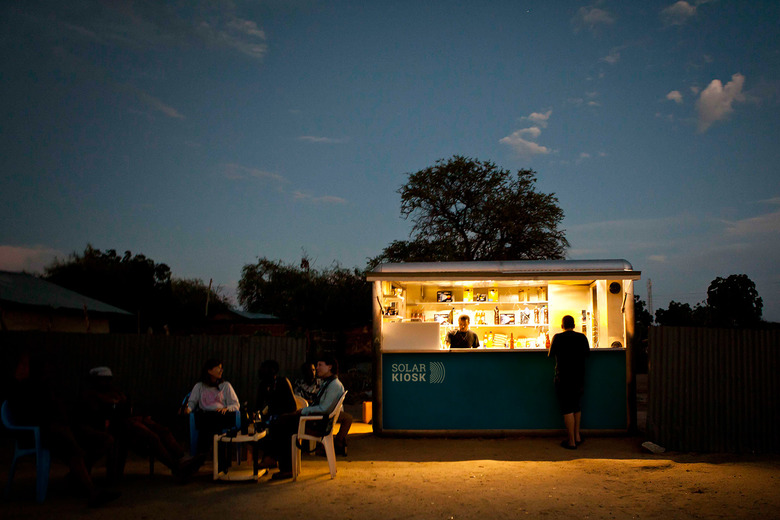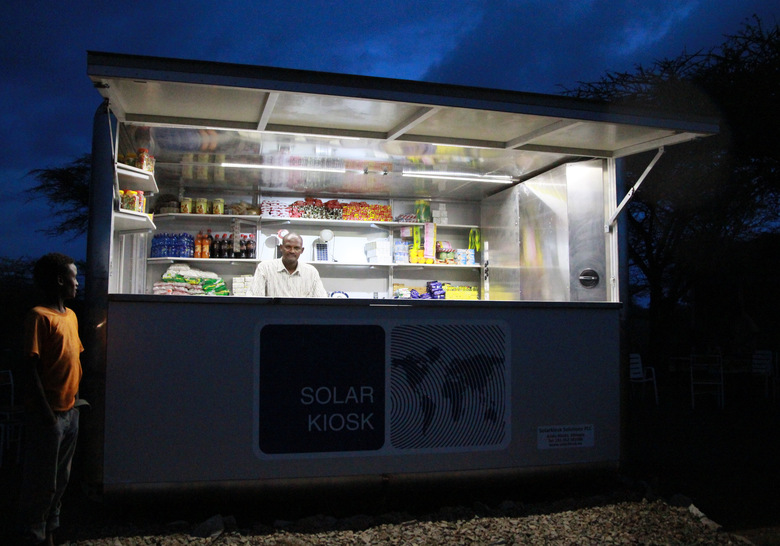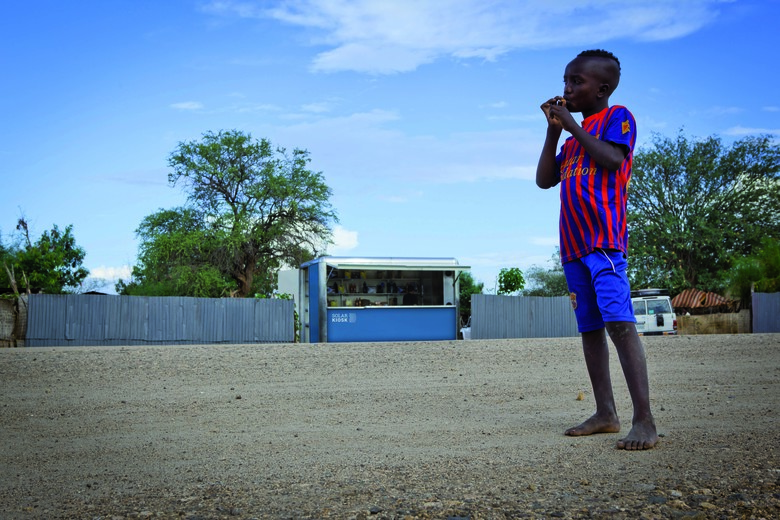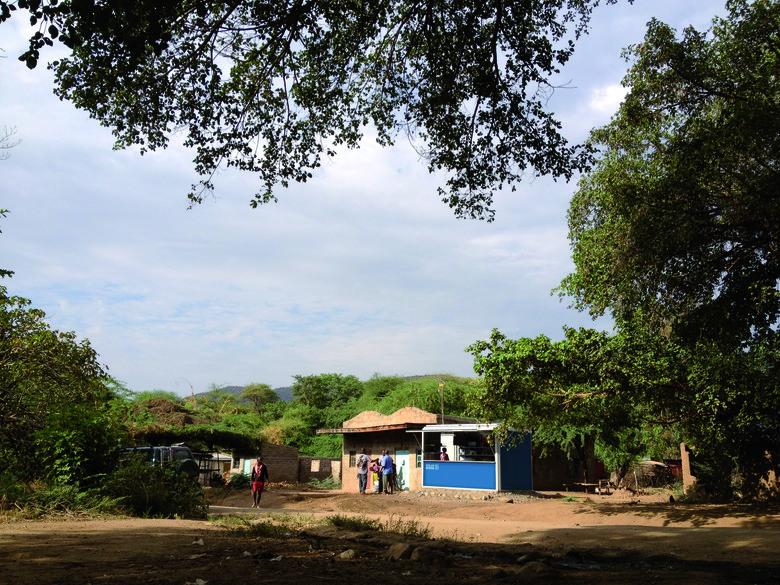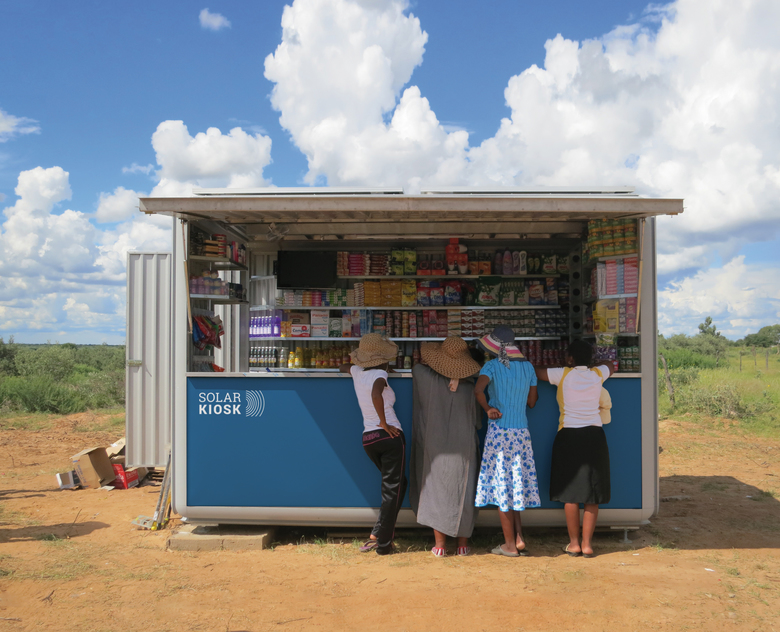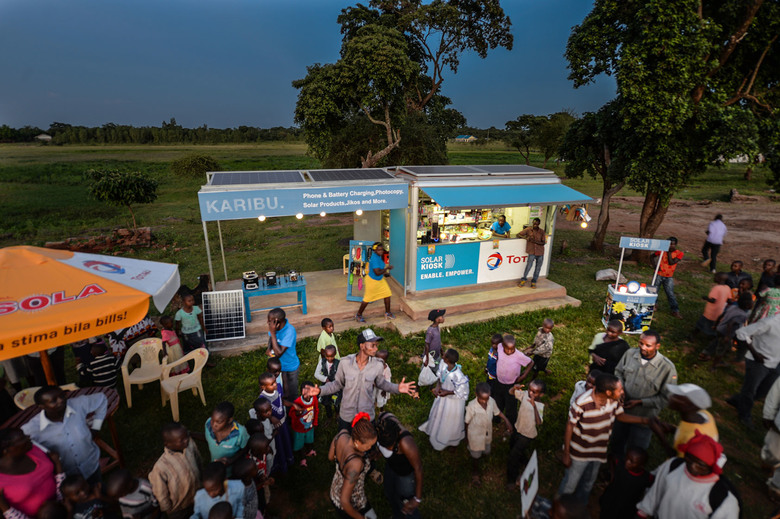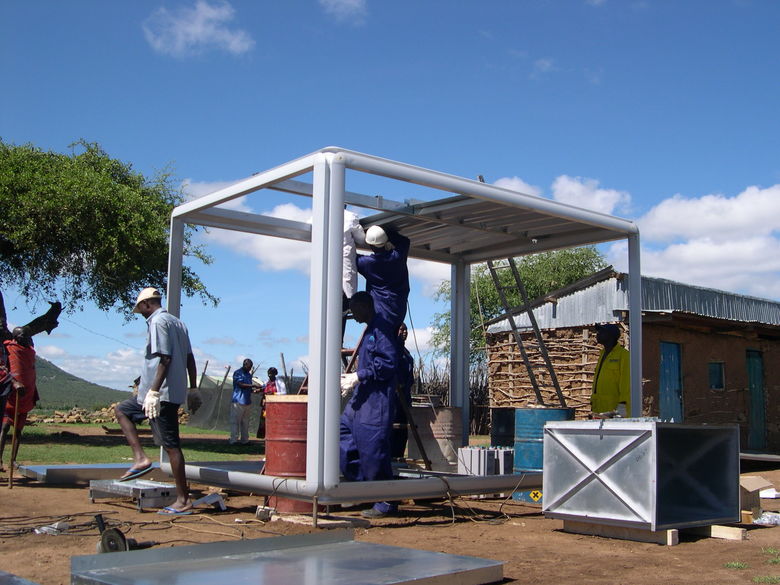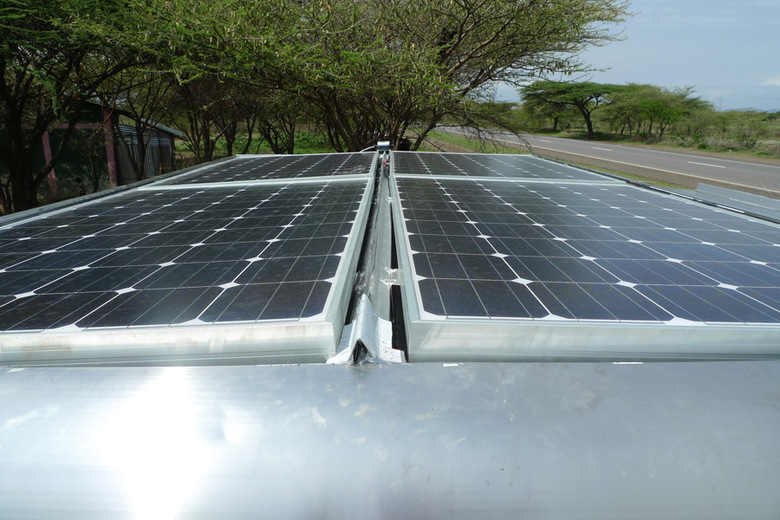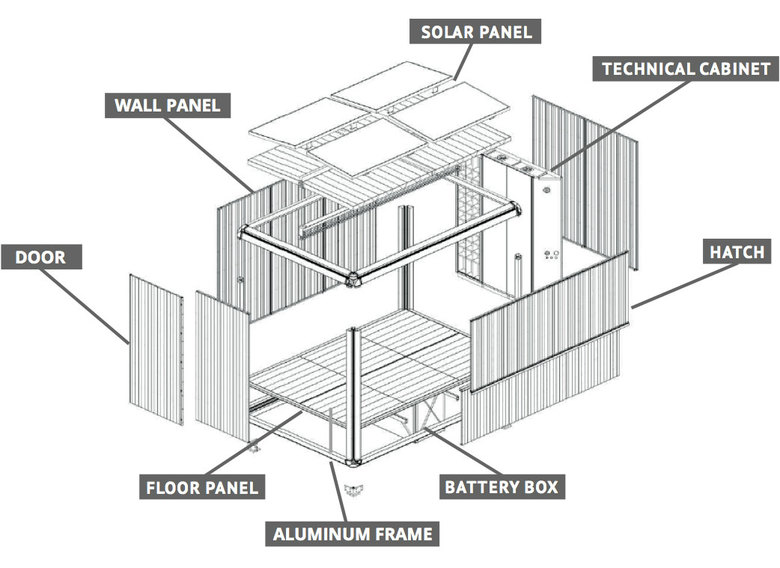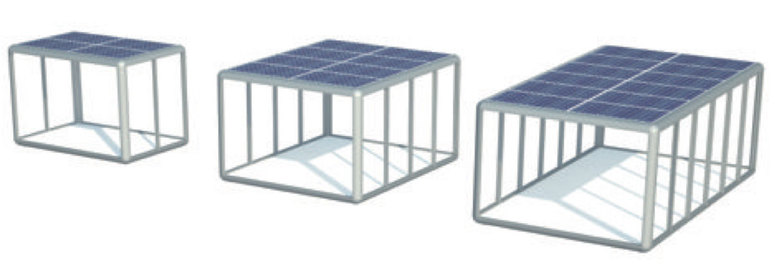Solarkiosk
When we hear about underdeveloped countries, the news is usually connected to a natural disaster, political unrest, starvation, or other catastrophes. Developed nations and their citizens are often called on to help with donations for food, medication, and even to rebuild an entire country. This much-needed and appreciated help can, however only address the symptoms of much larger problems.
The underlying issues might have to do with political systems, control over natural resources, mismanagement of infrastructure, religious wars, and even climate change. In any case, we as architects have very little or no influence upon any of these factors.
What, then, can we do to help the citizens of the developing world? We can try to create an infrastructure from the bottom up, working around governments and institutions and cooperating directly with local people. We can try to decentralize the means of production, just like Gandhi did in India with salt and cotton.
Processed goods were the essential products of the industrialized world during the twentieth century. In this century, dominated by service industries, communication has replaced commodities and industrial products as the driving force of the market. As we saw in the recent Arab Spring, control over knowledge and communication is a key issue for governments and societal structures. We selected this segment of the market as our starting point for the development of the SOLARKIOSK project. People need access to telecommunication even in the most remote regions not only for news and information purposes, but also in order to gain direct access to the global markets without censorship or financial control by governments or corporations.
We want to create a product that can create small, local businesses that allow customers to charge their own phone batteries, have access to the internet, or just watch a soccer match during the next World Cup. The product we designed is an energy source for telecommunication applications.
The SOLARKIOSK provides a complete, powerful, solarbased community business model, combined with suitable tools and equipment. Our model enables a variety of local retail businesses in previously untapped markets worldwide. It needs to be a kit design that is flexible enough to be set up anywhere. The smallest sizes of the SOLARKIOSK are 2x3 and 3x3 meter cubes, which can be extended according to demand. A kit of parts provides a scalable module both for increased need for electric energy – like for telecom towers – and additional spatial growth. The small, individual, and independent units can work on the local scale, cooperating with the pre-existing local structures and have the potential to create new, flourishing economic centers around the globe.
- Any
- 2013
- Client
- SOLARKIOSK GmbH
- Team GRAFT
- Wolfram Putz, Thomas Willemeit, Lars Krückeberg, Andreas Spiess and Ulrich Möller
